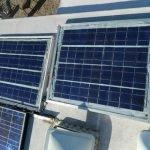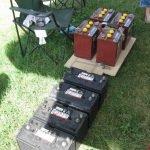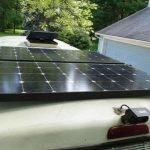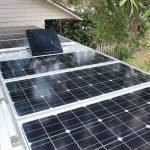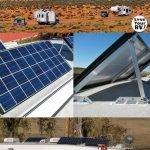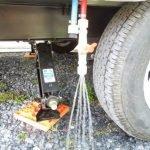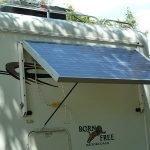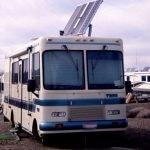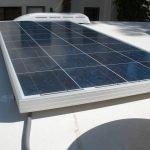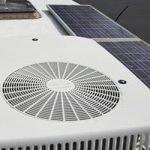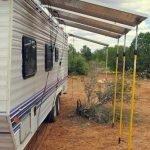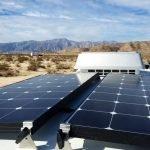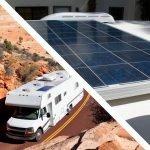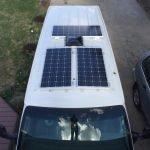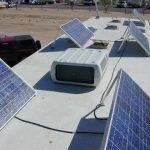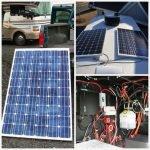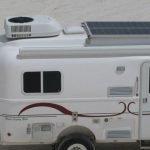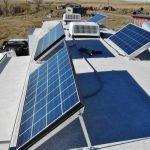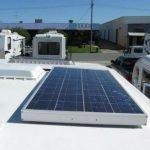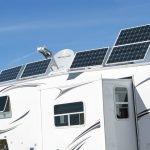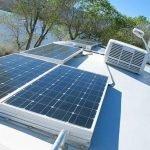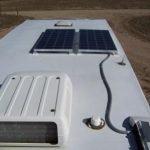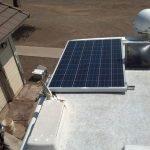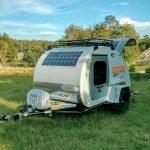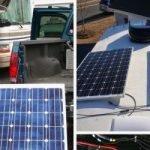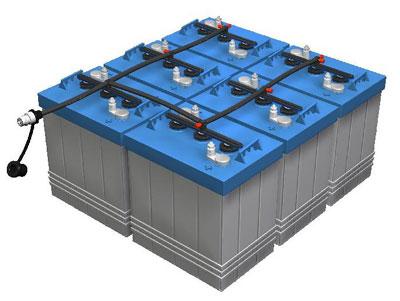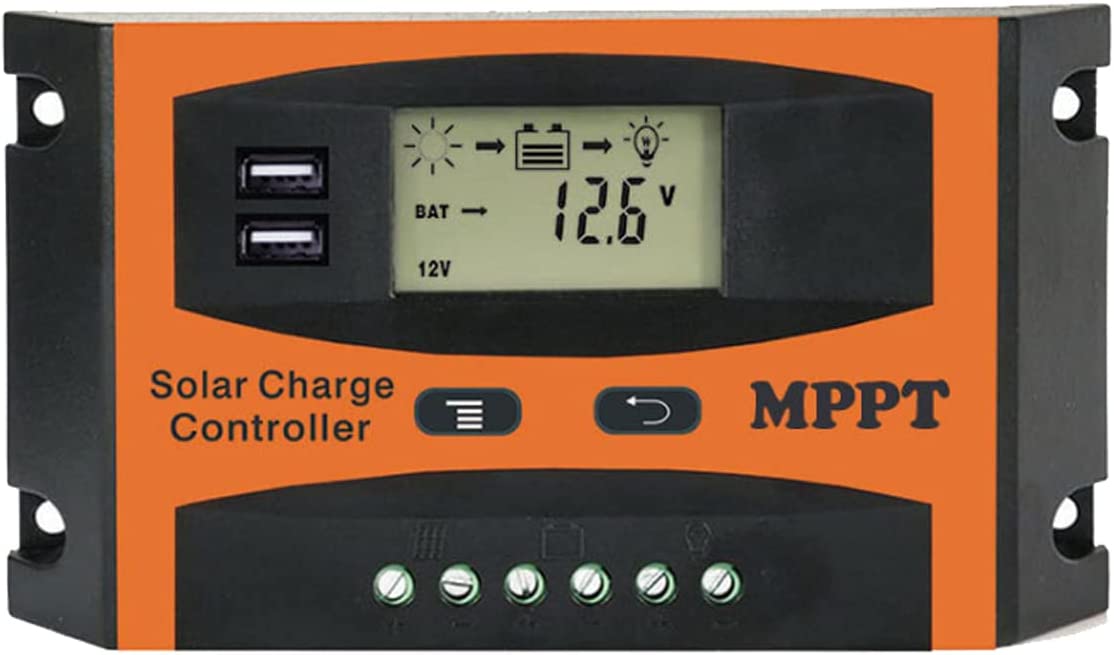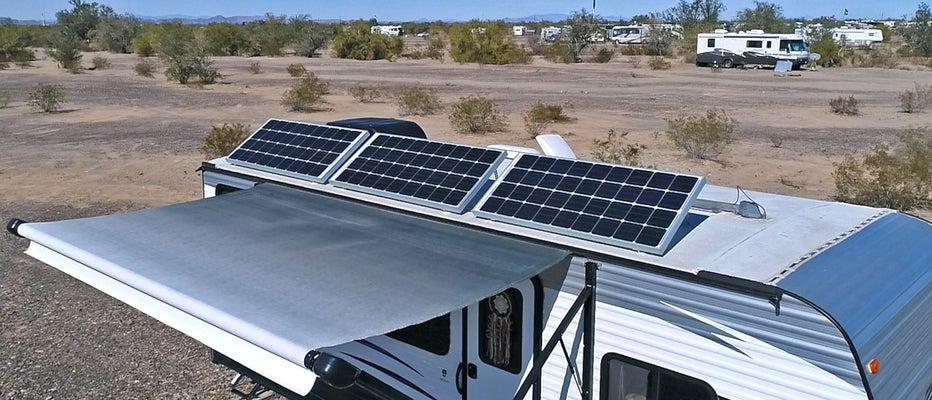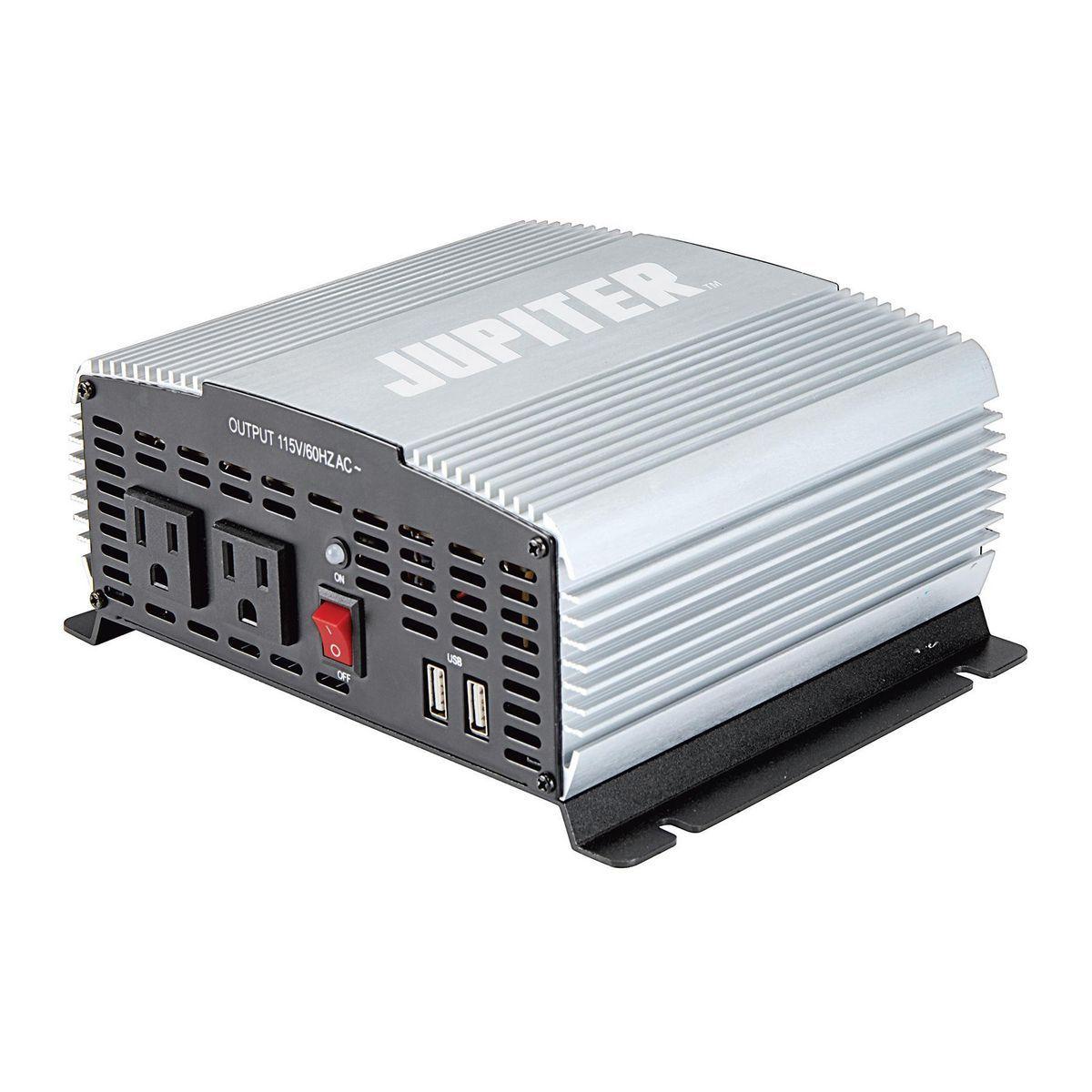Basics of Solar Power For RV
The solar panels on the RVs are very popular. Everybody is putting them together.
RV solar panels are what they are. How do they work, what do they do for you, and are they worth the investment? Let us find out what happened!
Table of Contents
What Are RV Solar Panels?
The photovoltaic effect was observed in the 1800s by scientists, where some materials would produce an electric charge and current when exposed to sunlight.
Over the years, attempts were made to create solar engines that had very low efficiency.
It wasn’t until the 1960’s that scientists were able to make a more efficient solar panel.
This discovery led to the development of solar cells that could harness the sun’s energy and turn it into electricity.
Over time, technology has evolved, but the concept is the same.
A solar panel is a panel filled with solar cells that capture the sun’s energy and turn that into usable electricity that powers homes, businesses, coffee pots, and, yes, your RV!
Let’s find out how it works.
How Do RV Solar Panels Work?
Imagine that you have solar panels on your RV. If your RV is parked during the day, the sun hits your solar panels and they absorb the energy from the sun.
Circuits inside your solar panels take the energy from the sun and turn it into electrical current.
The battery’s current is controlled by the charge controller.
This energy becomes DC (direct current) electricity that charges your RV’s house battery or batteries, basically “storing” energy to be used to power devices and appliances in your RV or charge devices for your later use.
The DC power from the solar panels and batteries varies. The RV has lights, appliances, and electronics.
If you want to power a coffee pot, you can take that 12-Volt DC, convert it to 120-Volt AC, and use the outlets found in a sticks-and-bricks house.
If you use a generator or your RV is plugged into shore power, there are 120-Volt outlets throughout the RV.
If you want to run a 120-Volt appliance in the desert, you can use solar panels to harness the sun’s energy.
If you have enough solar panels, batteries, and conversion ability, you can power anything.
How Many Solar Panels Do You Need For Your RV?
Knowing how much solar power you need for your camping comforts involves figuring out a few pieces of information.
The two parts of the equation help you figure out how many solar panels you need for the sun’s power to deliver electricity to you. The two parts of this equation are connected.
- What amount of watt-hours will you use each day?
- How much energy do your solar panels provide?
You have to balance this for an optimal system. If solar panels don’t have enough batteries to store all of the power they produce, you won’t get the power you need.
One solar panel and lots of batteries won’t allow enough of the sun’s energy to be harnessed to fill those batteries for use.
This balancing act can take some work and requires an entire article of its own to explain, but we can distill down the basics here.
How Much Energy Do You Use?
Knowing how much energy you use in a day is the first thing you have to do. There is more than one way you can do this.
The first part of the equation is math.
Take the number of hours you will use the device or appliance and divide that by the amount of power you will use to figure out how much power you will consume.
If you have one television that consumes 90 Watts, that is an example. It is estimated that you will watch television for two hours per day.
You can do the same for every appliance or device you want to power as you boondock, and you would add the total Watt-hours consumed to the 90W x 2h number.
It is possible to estimate the number of panels you need.
Energy Generation and Storage Needs
It is assumed that a 100-watt solar panel will produce 350-watt hours of power per day. This will vary by location and time of year.
Mortons on the Move explained a way to get a more accurate result. You will need to know how many batteries you need to store that power.
The Battle Born battery has 1200 Watt-hours of storage capacity. The number of Watts on your solar panels will only be stated under perfect conditions.
The sun is pointing directly at the panel. You won’t get 100 Watts from your solar panel on a rainy day. You will not get 200 Watts from your solar panel if you park in the shade.
It is difficult to determine the amount of power you will use on a given day. You may be outside all day and fall into bed and watch 15 minutes of television tonight.
Tomorrow could be a rainy day and you will stay inside your RV, do a lot of work on your laptop, and watch a couple of hours of TV in the evening. Estimating high is often a good idea.
Some people prefer to simply go out camping without electrical hookups and monitor their battery usage over a day, rather than estimating their daily power consumption using math.
A battery meter like the Victron BMV712 can give you an accurate reading of how much power your RV needs.
RV Solar System Components
Battery Bank
The power system of an RV is powered by your battery bank. An RV doesn’t have a way to store power if there is no battery.
The sun’s rays can be used to store energy in the battery. Your solar panels will be able to charge the battery bank.
Not all battery banks are created equal, and not all are suitable for the unpredictable charge cycles of solar systems. Lead-acid batteries are not the best choice for solar applications.
Charge Controller
There is a charge controller inside the RV. Wires are running from your solar panels to the charge controller and from the charge controller to the battery bank.
Control of the rate at which your batteries charge is what the charge controller is designed to do.
The charge controller is required to prevent overcharging and in the case of an MPPT charge controller, operate the panels as efficiently as possible.
RV Solar Panels
Your RV solar panels will sit on the roof of your RV collecting energy from the sun in the solar cells and sending it to your battery bank.
You can either lay the solar panels flat or use a mounting method that will allow you to angle the panels toward the sun.
Inverter
The 12-Volt DC electricity is from your batteries. You can power all 12-Volt devices and appliances with this, as well as the 12-Volt ports in your RV.
If you want to use 120V AC power to power a coffee maker, laptop, or anything that requires AC, you will need an inverter that converts 12V DC power to 120V AC power.
The power from your AC appliances and devices will be transformed from DC to AC when you mount your inverter inside your RV.
Is It Mandatory To Use RV-specific Solar Panels?
No, that’s not true. Any type of solar panel can be made to work with an RV, however, there may be challenges.
First, there is space available. The use of smaller panels is required for an RV roof with lots of stuff on it.
Full-size residential panels used in homes can be used for RV solar panels if the roof is wide open.
The second challenge for non-RV-specific panels is the voltage they operate at. The majority of RV solar panels work with most of the PWM charge controllers to charge a 12-volt system.
Home solar panels are usually not used with charge controllers. If the controllers have a high enough voltage rating, they can be used.
The use of most of the solar panels for an RV can be accomplished using an MPT controller.
How Can I Hook Up Solar Panels to RV Batteries?
Now that we know how many solar panels you want to add to your RV, we should figure out how to connect them to your RV batteries to produce electricity.
If you want to install a solar electric system for RVs, make sure you know how to work with electrical wiring.
The voltages for systems over a few hundred watts are not dangerous and can be installed by anyone.
The instructions for how the components should be wired are high enough.
If you purchased a kit containing the solar panel system parts, then you have a battery or battery bank installed in your RV.
Your kit will contain:
- A solar panel.
- A charge controller.
- A wiring harness.
- Battery monitor and an inverter.
Steps for Connecting RV Solar Panels to Your RV Batteries
The steps to connecting your solar panels to your batteries are listed here.
- You can put solar panels on the roof of your RV.
- It’s a good idea to put your charge controller in the RV as close to the batteries as possible.
- If the plumbing enters the RV near the batteries, you can run your wiring through the refrigerator vent.
- If you can, you can drill a hole through the roof of the RV to run your wires and cover any holes that are drilled.
- You need to connect the charge controller wires to the battery bank.
- The charge controller has a rated current that is slightly larger than the fuse installed on these wires.
- The RV solar panels are not connected to the charge controller, even though the system is complete.
- Before making the final connection, it is important to double-check the wiring to make sure that it is positive and negative.
- You can plug the solar panels into the charge controller once you’re confident.
- It is recommended to do this at night or with the solar panels covered by a blanket.
- If you want to use 120-Volt AC appliances, you will need to mount an inverter inside your RV as close to the batteries as possible and run appropriate wiring to that inverter.
Note:
If you are wiring your solar panels directly to your battery bank, there is no need to remove the existing conversion in your RV. The solar panels will be able to provide charge to the batteries.
Is It Worth Buying Solar Panels for Your RV?
If you always camp at campgrounds and RV resorts where you will be paying for electrical hookups to power your RV and your various devices and appliances, then investing in a solar system isn’t worth it.
A solar panel system is an excellent addition to your RV lifestyle if you like to boondock in areas without electrical hookups.
Solar panels provide silent power and can minimize the need for a generator. Solar panels are great for renewable energy!
A solar panel system is great for RVers. It allows you to stay wherever you want and use the sun’s power to address all of your electrical needs.

I`m a current Law Enforcement Officer working within the Counterterrorism Bureau in New York State. I have been Camping for over 20 years. My styles of camping include tent, car, truck, van, and RV travel trailer. I have a YouTube channel where I teach all types of camping with an entertaining method: https://youtube.com/@TheSmallsRVAdventures

